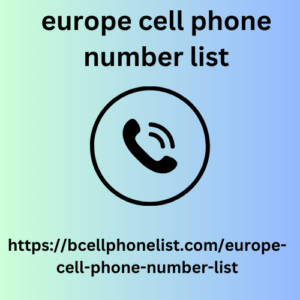AI-powered content creation is not only faster, it’s also smarter. Brands are using generative AI tools to create all kinds of unique content, including text, images, videos, sounds, and more.
Tools like ChatGPT allow marketers to fully integrate AI into their daily workflows. Writers use them to create blog titles, email subject lines, optimize metadata, and even write full articles.
Graphic designers are increasingly relying on logo creation tools, as well as AI-powered image editing and generation, to more effectively strengthen their brand and streamline the entire design process.
Video creation tools also allow companies to produce all sorts of promotional video content for businesses. Examples of such tools include Peech and Runway, where generative AI generates entire videos based on both simple queries and by recycling longer video content.
AI-powered audio tools are also helpful. They automatically read out scripts for videos and turn regular text into audio content for corporate needs. These tools provide a huge number of audio avatars to choose from. You can choose the tone, accent, and style of speech that best suits your marketing needs.
Atomic Content Personalization
Personalization with AI in marketing is the use of data to understand consumer behavior, patterns, interests, and preferences in order to create unique and relevant experiences for them.
Netflix’s recommendation system is a great example of how this works. Its algorithm figures out what a user likes and not only suggests similar shows that they’re likely to watch. The AI goes further and creates a hyper-relevant list of recommendations, where everything from the character’s image to the cover art is customized to the user’s preferences and pique their interest.
Netflix’s recommendation algorithm is so successful that nearly 80% of what people watch comes from it.
Artificial intelligence makes personalization easier by using modular web pages. A modular web page is one where each section has multiple versions. A set of X different headlines, X different intros, and X number of bullet points. What you see on the page depends on what you like: your digital behavior, interests, and preferences.
A person who is only looking for basic information on a topic might visit a page and see title A, banner B, introduction C, and listing F. Another user with different goals and behavior might visit the same page and see title B, banner A, introduction A, and listing version C.
By generating such hyper-relevan europe cell phone number listt dynamic content, AI ensures that the service or product being offered will be paired with a truly unique experience that will benefit both the user and the brand.
Marketing Optimization
You would be right if you said that both of the above mentioned trends fall under the category of marketing optimization. So why talk about it as a separate factor that is important?
Content generation and personalization how to write a powerful offer do play a role in marketing optimization, but they are far from the only factors.
If you look at marketing optimization from a broader perspective, you will find that AI serves a more comprehensive function.
- It can be used to measure the success (or failure) of any marketing campaign.
- Artificial intelligence can conduct A/B testing of marketing campaigns.
- AI can tell you exactly what factors contributed to the success or failure of a campaign.
You can use this information to make more informed decisions in the future. For example, if you run a salon business, you can use AI-powered bw lists data to target specific customer behavior patterns in your marketing efforts, such as offering discounted hair styling during periods of high humidity or restocking certain types of manicures during the holidays.
Both large enterprises and small service companies can use artificial intelligence to manage social media, online advertising, email campaigns, and a range of other tasks.
Intelligent content generation
The use of artificial intelligence in marketing depends on the specific goals of the campaign, global business objectives, financial constraints and available resources.To get the most out of AI, be careful about how you integrate it into your processes.
Don’t jump into the latest trends from scratch. Start by using the free trials offered by almost all AI-powered tools and see which ones work best for you. With more and more AI-powered services coming to the market every day, the selection process has become easier. Now you can pick the most relevant technologies and work only with them.

